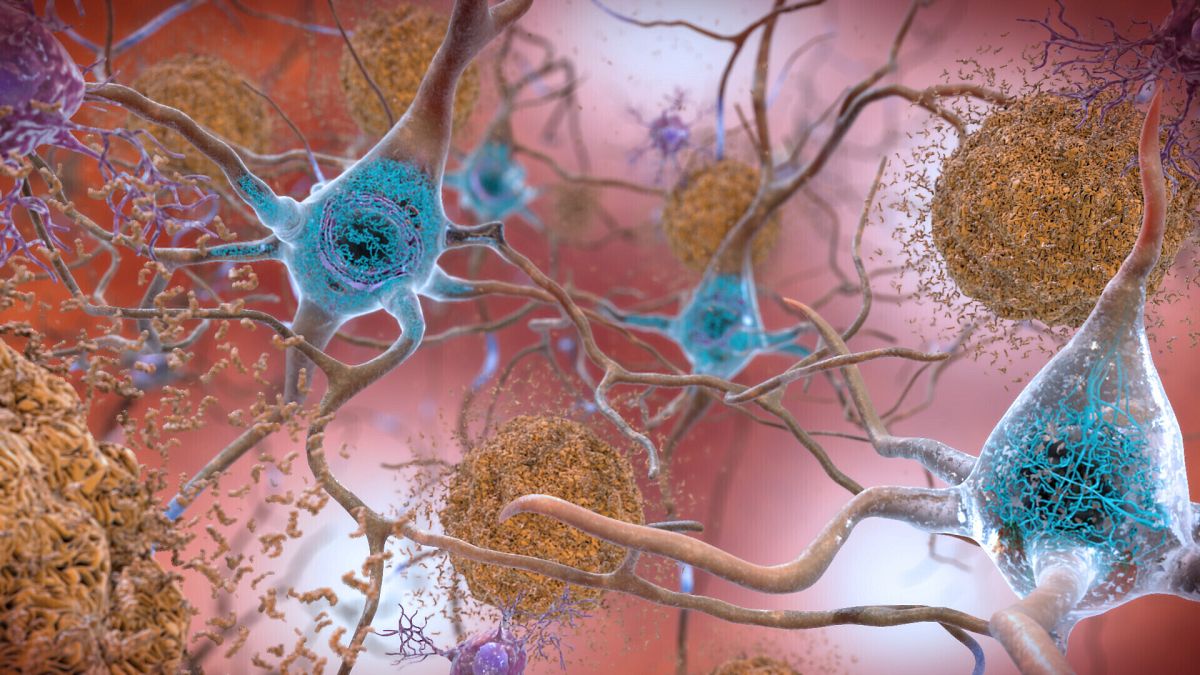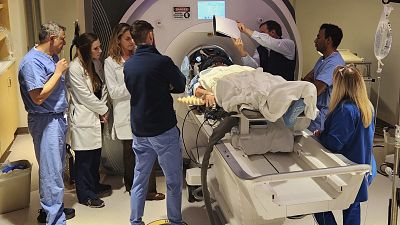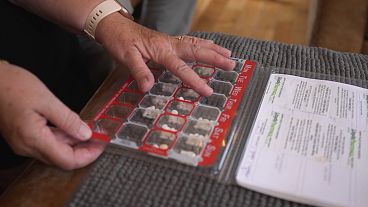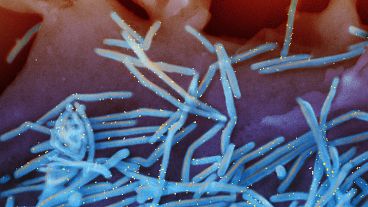Researchers found that an obsolete medical procedure may have resulted in the transmission of the amyloid-beta protein which is linked to dementia.
A new study has uncovered the first evidence that a few rare cases of Alzheimer’s disease may have been acquired through an obsolete medical procedure carried out decades ago.
Alzheimer’s disease is a neurological disorder and the most common form of dementia that most often impacts people over 65.
The disease is thought to be caused by the accumulation of proteins such as the amyloid-beta protein in the brain. This causes plaques that disrupt brain functions, initially affecting memory and later areas that control language and social behaviour, according to Alzheimer Europe.
In a new study, University College London (UCL) researchers found that five people treated as children with a human growth hormone may have developed Alzheimer’s due to the transmission of the amyloid-beta protein.
The human growth hormone c-hGH, which had been extracted from deceased individuals’ brains, was used to treat nearly 2,000 people in the UK between the years 1959 and 1985, the researchers said.
The use of c-hGH was stopped when some batches were found to be contaminated with proteins that caused Creutzfeldt-Jakob disease (CJD).
The researchers studied eight people who were treated with c-hGH in childhood over several years and published the findings in the journal Nature Medicine this week.
Five of them had symptoms of dementia and were between the ages of 38 and 55 when they started having symptoms, which is an unusually young age. Another person appeared to have mild cognitive impairment.
The team ruled out inherited Alzheimer’s disease for five patients who had genetic testing samples available.
“The patients we have described were given a specific and long-discontinued medical treatment which involved injecting patients with material now known to have been contaminated with disease-related proteins,” John Collinge, lead author of the study and Director of the UCL Institute of Prion Diseases, said in a statement.
The researchers specified that there is no indication that Alzheimer’s disease can be transmitted between individuals during routine care or daily life.
As c-hGH is no longer used, there is no risk of new transmission and there have been no reported cases of Alzheimer’s disease from other procedures.
“However, the recognition of transmission of amyloid-beta pathology in these rare situations should lead us to review measures to prevent accidental transmission via other medical or surgical procedures, in order to prevent such cases occurring in future,” Collinge added.
Dr Richard Oakley, from the Alzheimer’s Society, said in a statement that this study “provides evidence of an extremely rare and unusual route through which Alzheimer’s disease could potentially have been transmitted to some patients after they received human growth hormone from deceased donors’ brains”.
“However, it is not known how common Alzheimer’s transmission was in the 1,800 people who had this treatment and the study only looked at the records of eight people.
“With the treatment not used since 1985, there is no cause for concern for the health of the general population. Nowadays, patients receive synthetic alternatives which have been approved for safety and do not pose a risk of transmitting diseases”.



